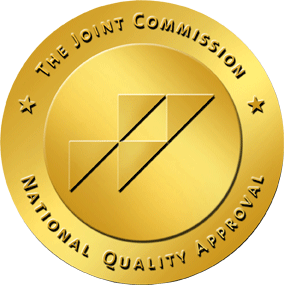Sleep Apnea: A Potential Risk to Pregnant Women and Babies
Sleep apnea, also called obstructive sleep apnea, is a relatively common medical condition in which the soft tissue at the back of a person’s throat collapses during sleep, which closes off the airway and makes breathing momentarily difficult or impossible. As a result of the blocked airflow, the person tends to “wake up” in order to actively resume breathing, though these waking sessions don’t always return the person to full consciousness.
As a result, a patient with sleep apnea sometimes gets up after what feels like a regular, if restless, night of sleep. But since the constant need to breathe prevented entry into the truly deep, restful and healing stages of the sleep cycle, the person may experience the symptoms of standard sleep deprivation. These can include memory and concentration lapses, drowsiness, clumsiness, irritability and headaches.
As it happens, there’s another condition that also tends to cause very similar symptoms: pregnancy.
When a doctor examines a patient who reports sleepiness and headaches, the doctor may be inclined to chalk those symptoms up to the ordinary and generally harmless changes that accompany a healthy pregnancy. But if you’re pregnant and you experience sleep-related issues, including an increase in snoring, it’s possible you may have a form of sleep apnea that requires some attention and treatment unrelated to the treatment and observation of your growing baby.
Here are a few of the symptoms you may experience as a pregnant person which may ALSO indicate sleep trouble that should be addressed before it causes potential harm to you or your baby:
- Waking up at night in a state of gasping or choking
- Frequent nighttime urination
- Excessive snoring
- Excessive daytime sleepiness.
Pregnancy and Sleep Apnea: Why Be Concerned?
If sleep apnea itself is a symptom of pregnancy, then this shouldn’t be a long-term problem, right? After the baby is born, the soft tissues of your throat will return to the normal condition, the same way your feet will stop swelling and your body will return to its original shape. Won’t this issue just fix itself with time? Not exactly.
As the baby develops and your pregnancy progresses, untreated sleep apnea can take you beyond temporary discomfort and daytime drowsiness and into a higher category of risk to the developing fetus.
C-sections and Preeclampsia
The first category of risk involves the birth process. According to the NIH, mothers with sleep apnea experience an increased risk of c-section delivery. About 65 percent of mothers with apnea required surgical birth compared with 33 percent of those with unobstructed sleep.
Preeclampsia, another birth complication, occurs for about 17 percent of mothers without apnea. By contrast, 42% of those with apnea develop preeclampsia as well.
Health problems related to oxygen deprivation.
Those who suffer from sleep apnea don’t quite receive the level of oxygen intake that they need for good health. If you’re pregnant and your body isn’t receiving adequate oxygen intake, the same deficiency may be affecting your baby as well.
As a result, babies of sleep apnea patients are more likely than average to experience low birth weights or pre-term delivery, followed by a stay in the NICU. Later in life, these babies may experience higher levels of obesity, diabetes and other adult burdens.
How can you tell if your symptoms are directly related to apnea, or are just a part of pregnancy?
It isn’t easy! But it’s a good idea to talk to your doctor about apnea treatments even if you aren’t sure exactly what’s causing your snoring, headaches, nighttime waking and daytime sleepiness. There are a few factors that increase the odds that you (and your baby) may benefit from treatment for sleep apnea. You may fall into a risk category if any of these conditions apply to you:
- Obesity
- Injuries or shape abnormalities in your face or neck
- Advanced maternal age
- Smoking
- Excessive pregnancy weight gain.
How can sleep apnea be treated during pregnancy?
So what’s next? If you’re pregnant, you’re experiencing sleep disturbances, and you and your doctor have decided that apnea is the cause and treatment is warranted, where should you go from here?
Your options will vary depending on your circumstances, but most likely, the best course of action will involve a CPAP machine. This is a device that helps your airway maintain continuous positive pressure as you sleep. A mask fits over your nose and mouth, with a tube connected to an air pressurizer. You initiate the air flow by turning on the machine, then you close your eyes and sleep normally.
A CPAP machine is perfectly safe during pregnancy, and won’t cause any harm or side effects, though you’ll need to stay in contact with your doctor to make sure your airway is staying open and your machine is providing all the benefits that it should. Keep in mind that the pressure settings on your machine may need to be adjusted as your pregnancy proceeds and your body changes.
Even after your baby is born, the quality of your sleep will still be critical, to both you and him or her. You’ll need enough oxygen to sustain deep sleep of course, and your baby will need you in good health so you can provide all the care and love she needs. After your birth, keep using your CPAP machine until your doctor recommends letting it go.
If you’ve experienced sleep apnea before, during, or after pregnancy, we’d love to hear from you. When did you first start noticing symptoms? When did you know it was time to get help and treatment? And how did your sleep apnea treatment or CPAP machine influence your pregnancy experience? Please share your thoughts with us!






